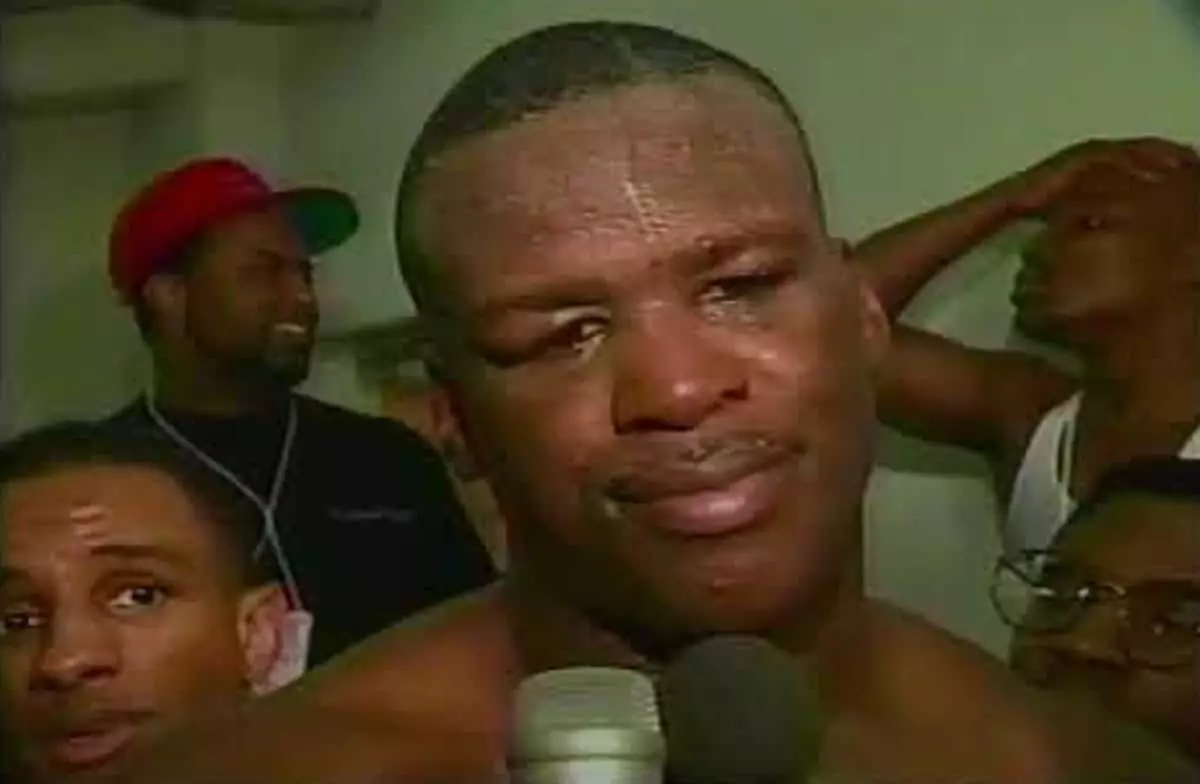In the realm of sports, stories that inspire fans often stem from personal trials and tribulations. For James Douglas, affectionately known as “Buster,” the days leading up to his monumental fight against Mike Tyson were steeped in pain and perseverance. The heartbreaking loss of his mother propelled him into a relentless training regime, one that belied his previous reputation as a less-than-dedicated athlete. Douglas, faced with the heavy burden of grief, transformed this pain into sheer determination, pushing himself to the brink in preparation for what many perceived as an impossible task.
The skeptics were numerous, echoing doubts about Douglas’s capacity to perform under the relentless spotlight of the boxing world. However, unbeknownst to them, the emotional turmoil and personal stakes surrounding this fight spurred Douglas to train with an intensity that had previously been absent from his career. His preparation was not merely physical; it was a psychological upheaval that would ultimately channel his emotional scars into a fierce resolve to capture the heavyweight title.
As the fight approached in Tokyo, anticipation was bleak, with most fans and analysts concluding it would be a mere showcase for Tyson, the undefeated champion whose record stood at 37-0. The expected outcome seemed glaringly obvious: Tyson would steamroll Douglas, adding another victory to his illustrious career. Many in the boxing community were more intrigued by potential matches against high-profile contenders like Evander Holyfield and Razor Ruddock, believing the Buster Douglas matchup to be simply a formality.
The night of the fight, mere hours away, was rife with disbelief and diminished excitement. Observers had already counted Douglas out, dismissing him as a mere stepping stone for Tyson. However, this lack of confidence in Douglas played a pivotal role; it allowed him to enter the ring without the usual hype surrounding champions. He was not merely fighting a formidable opponent; he was fighting against the skepticism that had dogged him throughout his career.
From the opening bell of the bout on February 11, 1990, Douglas defied expectations. He did not cower in the face of Tyson’s ferocity; instead, he stepped into the ring with an unyielding attitude that showcased his readiness to challenge the titan of heavyweight boxing. With precision and determination, Douglas executed a tactical game plan marked by fluid movement, effective jabbing, and, crucially, patience. His thoughtful boxing style allowed him to dictate the pace of the fight, causing a gradual yet palpable shift in momentum.
The crucial moment came in the eighth round. Tyson, who was presumed to be invincible, inadvertently dropped Douglas with a powerful uppercut. The boxing community held its breath, ready to pronounce the bout over in favor of Tyson. Yet, in a moment that epitomized resilience, Douglas rose. He defied the narratives constructed around him and demonstrated an indomitable spirit, showcasing the sheer will that had characterized his training.
The ensuing rounds were an embodiment of his determination. Douglas controlled the ninth round and finally delivered the knockout blow in the tenth, sending Tyson to the canvas. The world collectively gasped as Douglas fulfilled what many deemed an improbable mission. Boxing history would forever remember the night a determined underdog dethroned a champion.
Legacy of the Upset
What transpired on that unforgettable night has since been etched in the annals of sports history as one of the greatest upsets known to humanity. Douglas’s victory not only redefined his own career but also shifted the boxing landscape. For many, this fight symbolizes the unpredictable nature of sports and the capacity for hope in the face of insurmountable odds.
As we reflect on the events of February 11, 1990, the question lingers: where were you when history was made? In the tapestry of sporting tales, the story of Buster Douglas remains a powerful reminder that extraordinary circumstances can yield extraordinary results, urging us to believe, against all odds, in the potential for greatness within each of us.


Leave a Reply